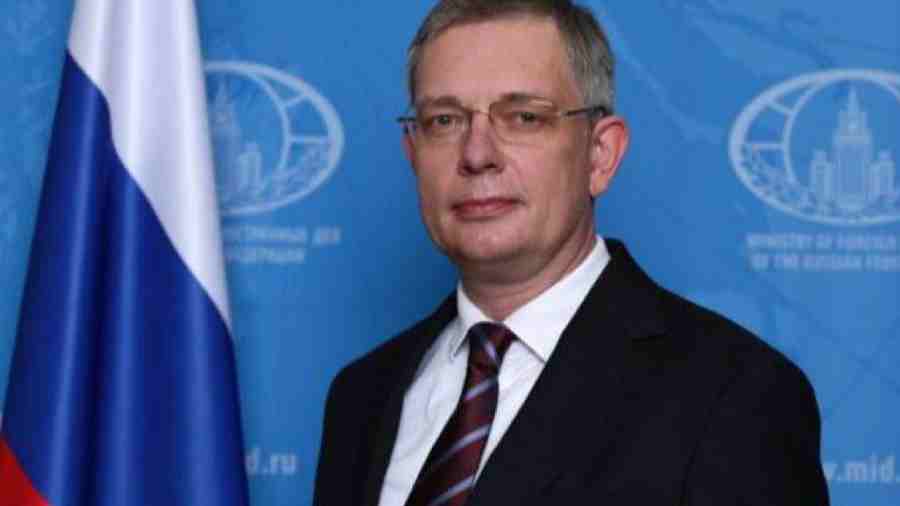India and Russia have established a mechanism for rupee-rouble trade, Russian ambassador Denis Alipov said on Monday but added that Indian banks are reluctant to use it for fear of US sanctions that he admitted had put stress on bilateral relations between New Delhi and Moscow.
Alipov said this during a discussion on “Next Steps in India-Russia Strategic Partnership: Old Friends, New Horizons” to mark the 30th anniversary of the 1993 Treaty of India-Russia Friendship.
“The mechanism of rupee-rouble trade has been established. It is now for the banks to use it. What we see is that many Indian banks are over-cautious... using this mechanism would not invite any secondary restrictions from the US if that is the fear. But still, the banks would like to be on the safe side. It will take some more time for the knowledge that it is not at all detrimental for the Indian banking system to sink in,” the Russian envoy said.
Within a month of the start of the Russia-Ukraine war on February 24 last year, external affairs minister S. Jaishankar had indicated in Parliament that the government was examining ways to revive the rupee-rouble trade mechanism that was provided for in the Indo-Soviet Trade Agreement of 1953 to deal with the US and the European Union barring transactions with Russian entities in the dollar and the euro.
Earlier, in his opening remarks, Alipov said bilateral ties between India and Russia “are under stress as we face tectonic geopolitical shifts that have been underway for quite some time but accelerated last year” with the Ukraine war.
Still, he maintained, mutual trade broke a record of $30 billion in 2022 despite attempts to disrupt economic cooperation between India and Russia. Much of this is on account of the 36-fold increase in Russian oil supplies, which now constitute 25 per cent of Indian oil imports, making Russia the biggest exporter to India, he said.
Add to this the manifold growth in fertiliser supplies. “It clearly demonstrated that India is ready to expand the mutually beneficial cooperation on the basis of sovereign decisions without succumbing to coercion,” Alipov said.
On the level of defence cooperation, Alipov said it “remains unprecedented”; adding: “Frankly, sometimes it is amusing to read about the US boasting of its defence cooperation with India as if it offers something exclusive. Nothing near the level of advanced technology transfers we offer. What the US is good at though is advertising, including the claims of poor performance of Russian weapons in Ukraine.”
Batting for normalisation of India-China relations, he underscored that the sooner it happens, the better it would be for the whole world barring US hegemony, arguing that this is why Washington actively exploits the contradictions between India and China to its advantage.
“Naturally we would like to see the normalisation of India-China relations because it would benefit world security in a big way. We understand that there are very serious impediments, serious border problems. We had a border problem with China and armed conflict with the Chinese at some stages.
“It took us around 40 years to negotiate but ultimately this is the only way to find a compromise. I am not going to suggest what India or China should do… that is entirely your bilateral matter. But the sooner there is normalisation between the two countries the better for the whole world. We on our part will do the utmost to facilitate if our efforts are needed and invited.”
On Pakistan, the ambassador sought to allay apprehensions in India about the growing engagement between Moscow and Islamabad. “We will never do anything detrimental to India in our relations with Pakistan. We strangled our defence cooperation with Pakistan precisely because it would impact our relations with India.” But, he added, Russia is keen to expand its economic presence in Pakistan.












